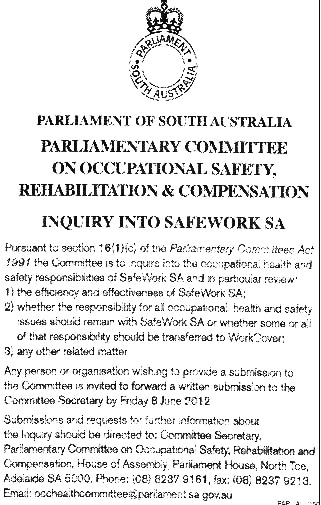In recent weeks on several LinkedIn discussion forums there has been a series of highly critical postings about the Safety Institute of Australia. (I have participated in some of the discussions.) Many comments have been unfair but almost all decry the absence of clear communication from the SIA and the very low profile of the organisation within Australia.
The SIA has struggled to gain traction in the Australian media even though the organisation has been in operation for over 60 years. It seems there is little about workplace safety that is attractive to the general community. (Who could not be fascinated by James Reason’s cheese?) But a recent article by Mark Phillips, Communications Director with the Australian Council of Trade Unions, in the May-June 2012 edition of The Walkley Magazine (not available online), provides a contributory factor to the lack of traction. Continue reading “The Safety Institute’s low profile needs to be seen in a media context”




